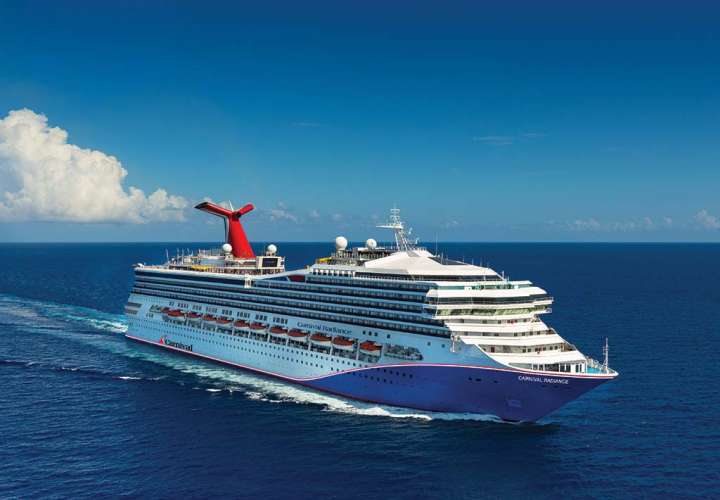The septic depths of hacking –another Watergate?

The hacking scandal in Britain has garnered headlines around the world, and led to major companies pulling their advertisements from the News of the World, part of the media empire that includes the Wall Street Journal and Fox News.
Andrew Cockburn, a British writer living in the United States, with an understanding of media on both sides of the Atlantic, had this to say in The First Post:
Having spent the past few weeks embroiled in the Strauss-Kahn case, listening to the locals assert that America's justice is superior to France's, we're now pitch-forked into the next debate: could US journalism sink to the septic depths of the News of the World?

What would happen if Rupert Murdoch had ever built a press empire over here?
Hold hard! One of Murdoch's earliest ventures in America, back in the early 1970s, was to found the Star, a weekly rival to the best-selling supermarket tabloid, the National Enquirer, paddling in the shallow waters of Hollywood gossip, gothic crime and stories about Bigfoot.
There was one huge difference. The Star and the Enquirer were never reckoned to be part of the "national press" as the News of the World is. They had zero political clout, and inflicted no political endorsements on their readers. They sold in 7/11 stores and supermarkets to an audience that did not lay them aside to pick up the New York Times.
The respectable press ignored the Star and the Enquirer even though they broke big stories. The Star, sold by Murdoch in 1990 to the Enquirer's parent company, was the first, in January 1992, to expose Clinton's philandering, during his first run for the presidency. He survived precisely because the scoop was in the Star and could be deprecated as being in a mere tabloid.
The same thing happened with the Enquirer and John Edwards, encumbered with a mistress as well as a wife with terminal cancer during his run for the presidency in 2008. The Enquirer was reporting accurately on John and Rielle Hunter's "love child" at the same moment as newspapers were giving Edwards a pass on the "tabloid tattle" rationale.
Finally the Enquirer was quite properly put up for a Pulitzer, though the jurors, respectable newspaper executives and the like, made sure it didn't win one.
Both the Star and the Enquirer were run by Fleet Street veterans and there's no particular reason to assume that these transplants were of innately superior moral calibre to Murdoch's crew at the News of the World, or would be aghast at the notion of breaking into voicemail boxes, fostering corrupt relationships with cops and so forth.
In fact the Enquirer had such swift, real-time inside dope on the movements of Edwards and his mistress that in retrospect I now wonder whether some investigator or in-house hacker discharged the same duties as private investigator and hacker Glenn Mulcaire, now whining about the incessant demands of the editors at the News of the World.
The darker moral moments for America's press came in the 1940s and 1950s. Billy Wilder's 1951 film Ace in the Hole and, six years later, Alexander Mackendrick's unforgettable film, Sweet Smell of Success, with Burt Lancaster playing a character modelled on the hugely powerful gossip columnist Walter Winchell, caught exactly the journalistic moral corruption that has Britain gasping in revulsion today at the Milly Dowler hacking.
This was the era that saw J Edgar Hoover, all-powerful head of the FBI, working week by week with nationally syndicated columnists like Winchell and Hedda Hopper to destroy suspected Commies, uppity blacks, and kindred subversives. By the mid-1970s, radicalism was on an ebb tide and this tactical alliance between columnists and cops less a political requirement. By the late 1970s Hollywood-based gossip became dominant – mostly fluff, mostly on terms dictated by the Hollywood studios.
Murdoch began the Star because the big city papers he craved weren't up for sale at that time. Then in 1976 he bought the New York Post and appeared to lose interest in the Star.
When he bought the Post, the press treated the acquisition of Dolly Schiff's liberal paper as a dark day for American journalism. Either Time or Newsweek or New York
magazine (later bought by Murdoch) had a cartoon of Murdoch on the cover as an ape shinning up the Empire State building.
As his empire grew, the zeroes in the price of his acquisitions, in his debts to the banks, in his personal fortune, predictably smoothed Murdoch's image. But there's nothing like competitive pressures to prompt an editor, or a publisher, to call for the knuckle-dusters.
It was Murdoch's takeover of the Wall Street Journal in 2007 and his vows to knock the New York Times off its perch that prompted the Times, under its recently ousted editor Bill Keller, to run last September a very long, closely reported magazine story on the News of the World hacking scandal, which helped breathe life back into the story.
As the grimy NoW saga lurches forward, impelled by the Guardian's exposes, nothing looms in my memory as an American parallel more than the Watergate scandal that destroyed Richard Nixon's presidency.
It really began when one of Nixon's senior aides, John Ehrlichman, formed a White House 'plumbers unit' and assigned hands-on hacking duties, starting with a break-in to the office of whistleblower Daniel Ellsberg's shrink, to get dirt on Ellsberg. If there'd been cell-phones back then, they'd have hacked those too.
Then came an attempted 'third-rate' burglary of the offices of the Democratic National Committee to install a secret microphone. The burglars were caught and for Nixon, slowly at first, the skies began to fall in. It took two years.
The investigation, pushed forward by two Congressional committees, an independent prosecutor and newspapers run by publishers hostile to Nixon gradually pushed responsibility for hiring the hands-on hackers up the tree, into the White House, into John Ehrlichman's office. Suspects were parlaying deals with prosecutors to avoid jail time for perjury and obstruction of justice by implicating their superiors.
The disclosures steadily became more devastating. Nixon threw Ehrlichman overboard. Finally a mid-level White House employee let drop to a Congressional committee that Nixon had secretly tape-recorded his private meetings. The tapes were subpoenaed and a 'smoking gun' duly found. Nixon resigned a few days later.
"Never believe anything till it's officially denied" was one of my father Claud's admonitions to young journalists and now we have Murdoch hastening to emphasise that NoW editor Rebekah Brooks was on holiday in Italy at the time the Milly Dowler voicemail hacking was underway in 2002. Presumably, amid this idyll, Brooks took no phone calls or emails from London.
Few corporate employees are more sensitive to the whims, preferences and overall political and moral coordinates of their commanders than journalists. Murdoch, ruthless and unprincipled his entire professional life, has cast a long, dark shadow over journalism in Australia, Britain and the US.
As plumbers like to say, shit flows downhill and payday comes on Friday. Small wonder that his employees carried out their grimy tasks without demur, just as Nixon's men did when they picked the lock of Ellsberg's psychiatrist's filing cabinet and jimmied open the back door of the Democratic National Committee's offices in the Watergate building on June 17, 1972.





